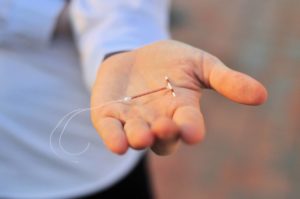 I recently took a dive into the research on copper IUDs after seeing so many midwives recommend these as a great alternative to hormonal birth control options, and even women are recommending them to other women “because they don’t contain hormones.”
I recently took a dive into the research on copper IUDs after seeing so many midwives recommend these as a great alternative to hormonal birth control options, and even women are recommending them to other women “because they don’t contain hormones.”
Yes, it’s true that copper IUDs do not contain hormones. But copper AFFECTS your hormones. I used to think that this is how they worked. But then I learned that what midwives (and I assume doctors) are being taught is that they work by causing inflammation in the uterus, which prevents pregnancy. I was mortified when I learned that. When is it EVER a good idea to CAUSE inflammation in our bodies?! Inflammation is at the root of most health issues! But as I was researching more, I learned that copper IUDs also work by increasing copper levels in the uterine and vaginal fluid to levels that are toxic to sperm.
In a world where so many women already have excess levels of copper in their body, this is really troubling. While a lot of research says that this is localized, if you’ve been following me for any length of time, you know by now that no organ or system in our body works in isolation. Sure, it’s true that 8 out of 12 studies in a recent review showed that there was no increase in serum copper levels. But 4 did. The authors also point out a major flaw in all 12 studies – they only measure total copper and not free copper (or as I often call it, unbound copper). This is the toxic form of copper in women’s bodies. It wreaks havoc. So it would be helpful to know if THIS form of copper increases in women’s blood. But that data isn’t available.
What IS available are studies that compared biopsies of endometrial and fallopian tube tissue in women with or without a copper IUD. This study showed an increase in copper levels in endometrial tissue in women at just 6 weeks after the IUD had been inserted. In this study, the authors report that “the copper was visually accumulated” in the tissue of women’s fallopian tubes who had been using a copper IUD. Additionally, copper levels tested at 58% higher in this tissue than in women who had not used a copper IUD. Like the literature review I mentioned above, neither of these studies showed an increase in serum blood copper either.
So why is this bad? If the copper is staying in the uterus, what is the big deal? The big deal is that nothing in your body works in isolation. All of your organs and systems are connected. So what affects your uterus or your fallopian tubes DOES affect your overall health. Additionally, just because something doesn’t show up in your blood does not mean that it is not causing issues in your body.
I see women regularly who have low copper on their hair test results. This does NOT necessarily mean that they have low copper in their body though. Like with heavy metals, sometimes their body is hanging on tight to the copper because it can’t handle it and doesn’t know what else to do with it. So it gets stashed in organs or tissues. In the case of copper IUDs, there is a literal source of copper intentionally being added to tissue.
Let me connect the dots a bit more as to why this is a big deal. Copper is linked to estrogen. Generally, as copper rises, estrogen rises; and as copper falls, estrogen falls. But it’s a bit more complex than that. I mentioned above that there is something called free or unbound copper that is toxic. This also correlates to estrogen. Not all estrogen is created equal. In fact, there are THREE types of estrogen – estriol, estrone, and estradiol. As you can see, this can quickly become a confusing mess. But suffice it to say, that what you are aiming for is optimal levels. You don’t want too much or too little of any one of these things.
Yet, many women who turn to birth control, do so because of hormone imbalance issues. These imbalances often stem from an estrogen excess. So if you are one of these women, then adding more copper to your body is a recipe for disaster. You might not notice it right away, but it WILL be having a negative impact on your body. This is because if you add copper to your body through your diet, you are likely getting the enzyme ceruloplasmin along with it. That enzyme is what binds to the copper, which makes it good and useful in your body. But a copper IUD doesn’t come with ceruloplasmin, so it’s free to move through your body unbound and can cause major issues.
What are some of the issues I’m talking about? They could sneak up on you so that you don’t even notice, or you may not attribute them to this extra source of copper. The list is long for copper excess symptoms and includes:
- Mood swings
- Eating disorders – anorexia, bulimia, overeating
- Overly sensitive or easily triggered
- Weepy
- Paranoid
- Feeling a loss of control
- Hopelessness, despair, doom
- Depression
- Anxiety or panic attacks
- Brain fog, spaciness
- Short attention span
- Problems with concentration or memory
- Racing mind, obsessive thoughts
- Insomnia, interrupted sleep
- Depleted, fatigue, exhaustion
- Chocolate cravings (of note, chocolate is high in copper)
- Cold hands and/or feet
- Aching muscles or muscle cramps
- Hypoglycemia (low blood sugar)
- Low blood pressure
- Constipation
- Hypothyroidism
- Dry skin
- Arthritis
- Calcium spurs
- Yeast infections or chronic candida issues
- PMS
- Mono (EBV)
- Racing or pounding heart
- Headaches or migraines
I would like to think that symptoms like these from copper IUDs are rare, but the studies that were included for Paragard (one of the most popular copper IUD brands) to receive FDA approval show that a high percentage of women dropped out each year from the study due to medical issues. 11.9% of the 4932 women initially enrolled dropped out in the first year due to bleeding and pain, and an additional 2.5% discontinued due to an “other medical event” (not specified, but certainly could be one or more of the symptoms from the list above). In year 2, 9.8% of the remaining women discontinued due to bleeding/pain, and 2.1% dropped out because of another medical event. Each year, more and more women discontinued for medical reasons, leaving only 325 women still in the study by year 10. That is only 6.6% of the original study participants remaining.
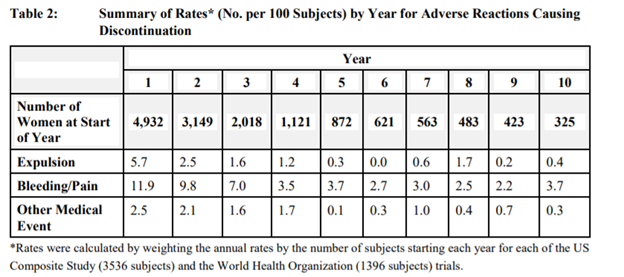
And we have no way of knowing from this data how many women continued with their copper IUD despite troublesome side effects because they were still less severe than, perhaps, the pain they were experiencing with their period prior to using the IUD.
This is not normal. As a woman, you should not have to choose between bad and worse. Nearly every single hormonal issue involves the liver. THAT is the real place to start if you are struggling with hormone-related issues.
What does liver support look like? It can mean using herbs like dandelion root in a strong tea daily, castor oil packs over your liver nightly before bed, or herbs like milk thistle, turmeric, or Oregon grape root. There are even combinations of herbs available that are phenomenal for liver health like Bioray’s Liver Life or Herb Pharm’s Liver Health tincture. Picking one or two of these things and starting slow so that you give your body the chance to keep up is ideal. You can always add additional liver support and/or copper balancing ideas down the road, but this can help get you started.
 Denise Brusveen is a Certified Women's Herbal Educator and Hair Tissue Mineral Analysis Practitioner and holds a Master of Science degree with a research emphasis in reproductive physiology. She is passionate about helping girls and women to become informed about holistic options to overcome health challenges related to their hormones.
Denise Brusveen is a Certified Women's Herbal Educator and Hair Tissue Mineral Analysis Practitioner and holds a Master of Science degree with a research emphasis in reproductive physiology. She is passionate about helping girls and women to become informed about holistic options to overcome health challenges related to their hormones.
How to Kick Constipation to the Curb and Get Things Moving
If you're struggling with constipation, it's important to make sure that you've got the basics covered first: Are you drinking enough fluids throughout the day? Are you getting enough fiber through your diet via fresh fruits, vegetables, and/or whole grains? Are you...
Why I’m Not a Fan of Colloidal Silver
Whether it’s for preventing or treating colds or influenza, used on cuts, scrapes, burns, dropped in eyes for pinkeye and ears for ear infections, colloidal silver is praised as a cure-it-all by many. But not me. I’m a bit of an oddball when it comes to this one. ...
Stop Calling Wild Yam Cream a Natural Source of Progesterone!
I see it over and over again in holistic health groups…women stating that they use wild yam cream as a natural source of progesterone. They usually recommend it when a woman is asking about progesterone support for pregnancy, a short luteal phase, or if they’ve had...
How to Get Useful Labwork Without a Doctor
If you’re like many women who are frustrated that your doctor won’t order the blood tests you want, you’re in luck. Did you know that in most states (with a few exceptions listed below), you can order your own lab work directly? And in many cases, this is cheaper than...
7 Herbs to Eliminate Period Pain
I talk to women nearly weekly who struggle with painful periods, some of them for decades. They may or may not be getting some relief from things like birth control, ibuprofen, or other painkillers, but they don’t want to be on these things anymore. If that’s you...
My Favorite Herbal Books
My Favorite Herbal Books By: Denise Brusveen, MS I get asked often for herbal advice, and sometimes people ask me about my favorite books too. You just can’t beat having the information in your own hands for when you need it! So let me share my favorite books...
Elderberry Syrup
Elderberry syrup has held a place in my refrigerator for close to 10 years now. It's so easy to make, and it's something great to have on hand should you (or one of your family members) start coming down with cold symptoms. For the first couple years, I gave a...
Potassium – Why You Need It, How to Get It
I’ve been asked before what my favorite mineral is. While it’s hard to choose just one, if I HAD to pick, I’d say potassium. I know, I know, you’re probably thinking that’s a weird choice, especially when things like magnesium are all the rage these days. The reason I...
Delicious (Healthy) Pumpkin Seed Chocolate
Zinc is getting a lot of attention right now for improving immune function, but I was interested in this important mineral long before that and discovered that pumpkin seeds are an excellent source. But I wasn’t impressed with their flavor plain, so I started...
Adaptogens – A Woman’s Best Friend
You might be asking, “Adapt-a-what?” Adaptogens are a category of herbs that help you to balance your body’s stress response. In a good year, many women could use help with that. But in 2020? Sign practically everyone up! One of the most important benefits of...


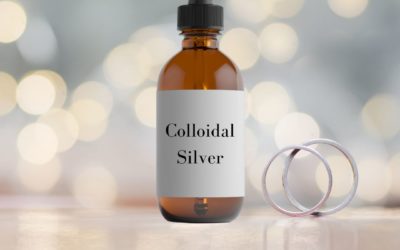

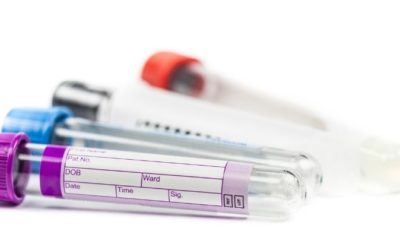

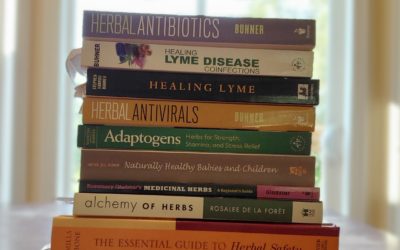
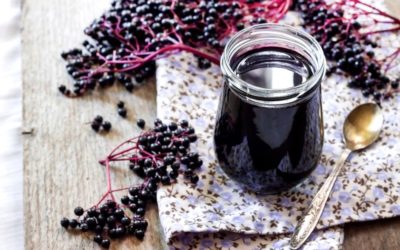

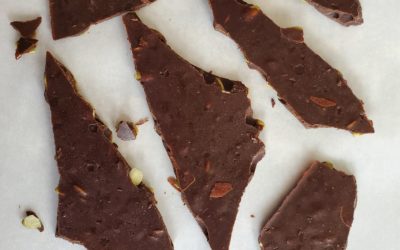
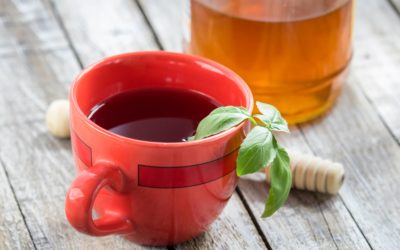
Recent Comments